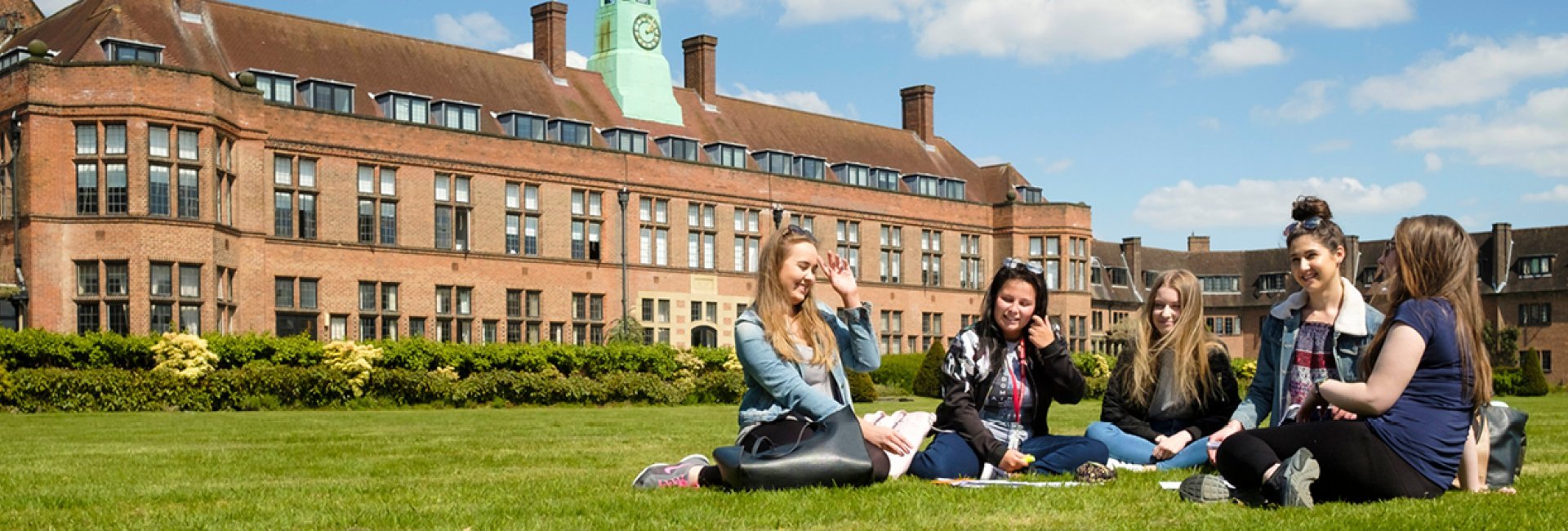Open Day- Saturday 28th June 2025
28 Jun 2025, 09:00
Liverpool, Merseyside


This is a four year degree taught at our Hope Park campus. The Foundation Year aims to develop your skills so that after a year, you will be equipped with the necessary skills needed for studying the full BA Hons degree programme.
Film & Visual Culture
If you want an exciting career in the creative industries, but also want to understand the role that film and visual culture plays in wider society, studying at Liverpool Hope is the right choice for you. Film and Visual Culture is an intellectually stimulating degree that combines theory and practice, and encourages you to explore the way in which cinema represents issues such as gender, race and inequality.
This degree is underpinned by creative and critical practice. It is creative because it gives you the opportunity to develop practical skills in the fields of screenwriting, filmmaking (drama and ocumentary), photography and animation. It is critical because it involves the in-depth study of film history and theory, including the way in which cinema intersects with a range of social and political issues. You will graduate with a degree underpinned by academic rigour, but with the transferable skills needed to pursue a wide variety of careers in the creative industries.
Psychology
Psychology is the study of people, with a particular focus on individuals. Knowledge and skills cultivated within the discipline enable practitioners to intervene at personal, inter personal and systemic levels in order to enable people to live better lives. Choice of programmes allows students to study a course that reflects their prior interests, lived experience, or future goals. Ethical practice and working within a shared set of values is also important to us; our University is deeply committed to serving the common good. We see Psychology as a discipline with the capacity, and responsibility, to make a positive contribution to how people live in everyday life.
In our teaching of Psychology, we strive to enable our students to grow into constructive citizens who are curious about people, and motivated to make a positive difference to the lives of others. Beyond classroom learning, there are opportunities to enrich your chosen programme of study in a way that will help you in developing your psychological thinking. They include going on a placement, working as a research assistant in a laboratory, travelling to another country as part of Global Hope, or under the Erasmus study abroad scheme.
Liverpool Hope University offers an integrated curriculum. Please go to the course link provided for further information on the topics you will study as part of this degree.
Students are assessed via a number of methods. Please go to the course link provided for further information.
Professionally accredited courses provide industry-wide recognition of the quality of your qualification.
To work as a teacher at a state school in England or Wales, you will need to achieve qualified teacher status (QTS). This is offered on this course for the following level:

Learn what it's like to study at Liverpool Hope University. From key stats to campus highlights, open days, and more - find everything you need to know here.
The following entry points are available for this course:
Applicants must achieve a minimum of 72 UCAS points for entry on to this course. UCAS Tariff points can be made up from a range of qualifications.
There may be some flexibility for mature students offering non-tariff qualifications and students meeting particular widening participation criteria.
Please contact our Student Enrolment team directly for further information.
t: 0151 291 3899
e: admission@hope.ac.uk
| Test | Grade | Additional details |
|---|---|---|
| IELTS (Academic) | 6 | For International students, an overall score of 6.0 is required, with 6.0 in both reading and writing and no individual score lower than 5.5. |
This section shows the range of grades students were previously accepted with - learn more. It is designed to support your research but does not guarantee whether you will or won't get a place. Admissions teams consider various factors, including interviews, subject requirements, and entrance tests. Check all course entry requirements for eligibility.
We are unable to show previous accepted grades for this course. This could be because the course is new, it's a postgraduate course, there isn't enough historical data, or the provider has opted out of sharing their entry grades data for this course - learn more.
Subject Spotlights give you the chance to try a higher education course before you apply. Delivered by the lecturers themselves you will gain insight into what it's like to study the course and give your personal statement a boost.

| Location | Fee | Year |
|---|---|---|
| EU | £9250 | Year 1 |
| England | £9250 | Year 1 |
| Northern Ireland | £9250 | Year 1 |
| Scotland | £9250 | Year 1 |
| Wales | £9250 | Year 1 |
| Channel Islands | £9250 | Year 1 |
| International | £12500 | Year 1 |
Tuition fee status depends on a number of criteria and varies according to where in the UK you will study. For further guidance on the criteria for home or overseas tuition fees, please refer to the UKCISA website.
Please note, some of our courses may have additional costs. Please visit the course webpage for further information.
Hope Park
Liverpool
L16 9JD
Visit our website Visit our course page
Email:art@hope.ac.uk
Phone:0151 291 3516
Email:psychology@hope.ac.uk
Phone:0151 291 3418
Email:enquiry@hope.ac.uk
Phone:0151 291 3111